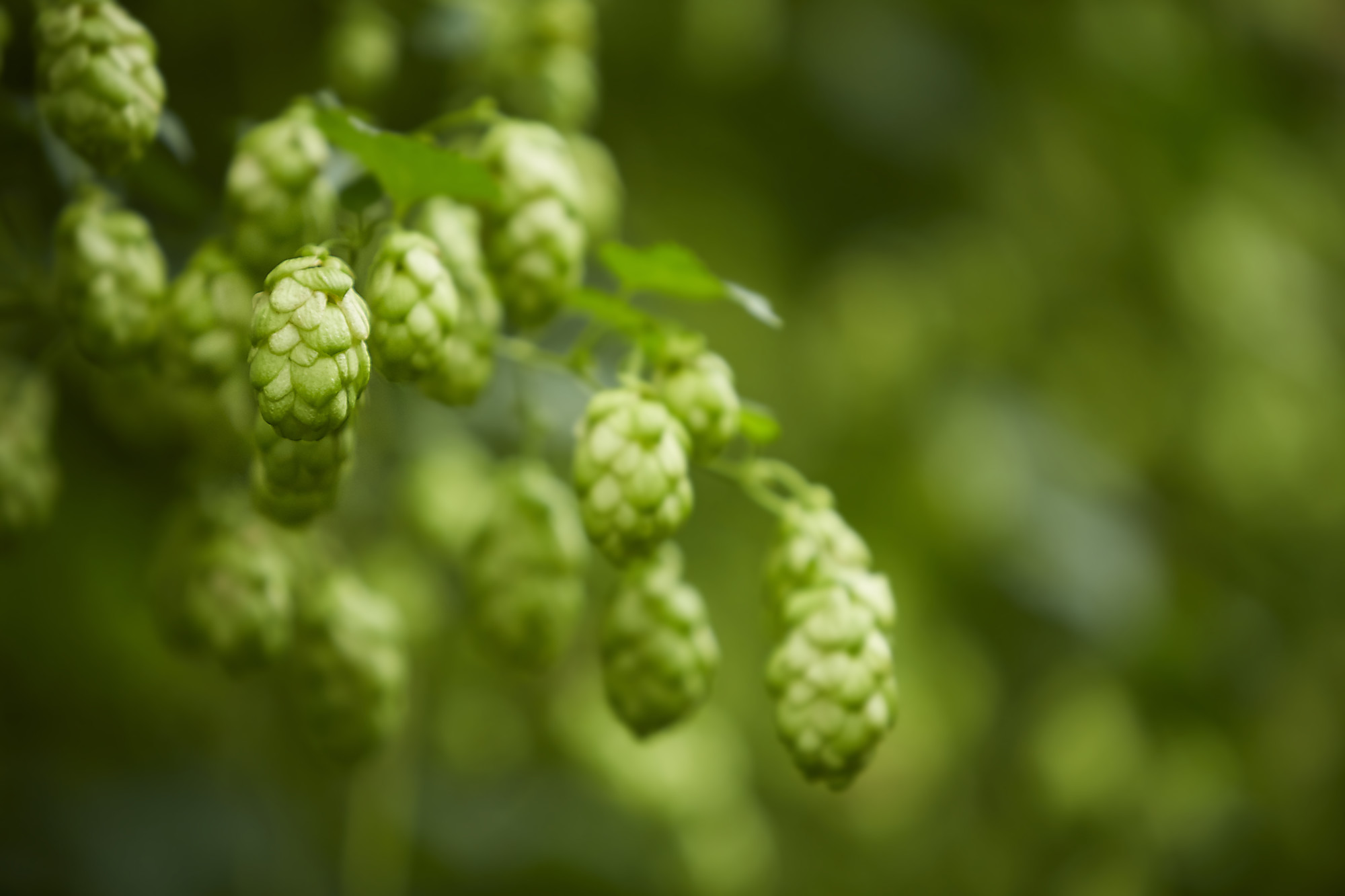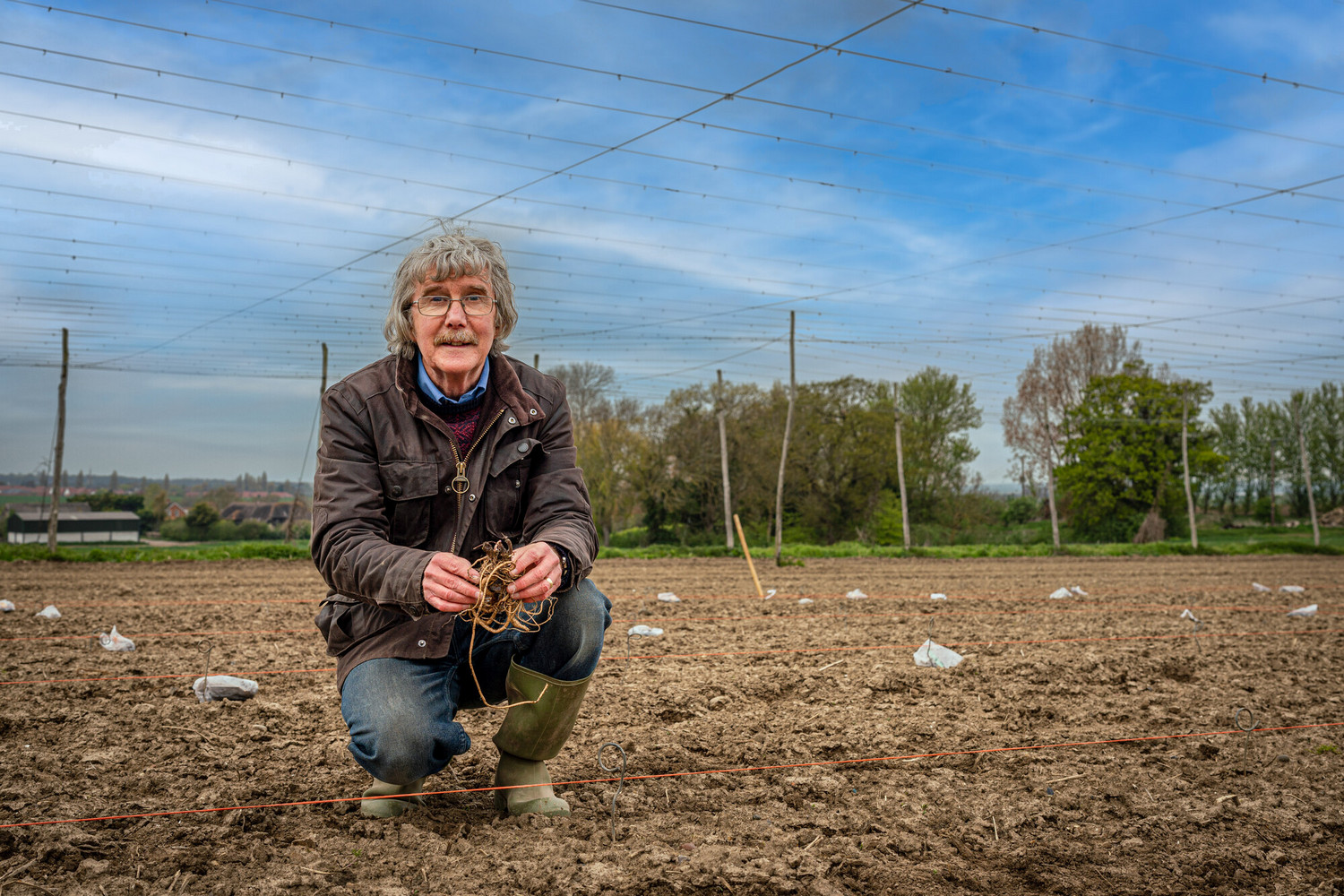The National Hop Collection, which preserves historic varieties of hops and provides the resources to breed new varieties, is to expand. It has moved to a larger garden, with support from Shepherd Neame.

The collection was originally established at Wye College, in Kent, but after the college’s closure, in 2007, it moved to land provided by Shepherd Neame at Queen Court Farm in Ospringe, near its historic brewery in Faversham.
It was accredited as a National Hop Collection in 2010, and has grown significantly during the past 14 years, so more space was needed. A new site at Homestall Farm, in Faversham, was identified, owned by local hop grower Antony Redsell, and after months of preparation the move took place last week.
The relocation project has been led by Dr Peter Darby, who founded Wye Hops, which oversees the collection. He held the position of director of research until his retirement in 2020.
He said: “I am incredibly proud of everything we have achieved with the collection, so when the opportunity arose to move it to a bigger site where it could be enlarged and improved, I wanted to get involved, as it felt like a fitting way to finish my work with Wye Hops.
“We were grateful to receive such generous support from Shepherd Neame, which pledged not only to fund the move, but to continue providing a significant annual contribution to its establishment and maintenance for at least the next five years.”
Dr Darby led a team of ten in moving the collection to Homestall Farm, including Wye Hops’ new director of research, Klara Hajdu, and farm manager, Peter Laslett. Once all the hop plants were at the garden, they laid them out in lines, noting the variety and position, and then put them in the ground before covering them in mulch to suppress the weeds. New strings will now be put in place, reaching upwards from the ground to horizontal wires across the field, so the hop bines can grow up them over the coming months.
Dr Darby, who lives in nearby Canterbury, added: “Homestall Farm was a hop garden around four years ago, and has lain empty since then, so it is great soil for the collection to grow in. We expect to see shoots in around six weeks, then by the end of next year we hope that they will have grown to the top of the strings. We hope to offer guided tours to the public from 2025.”

Dr Peter Darby at the new site
Due to the additional room available at Homestall Farm, the collection has already been able to expand from 250 to approximately 360 historic varieties of hops, mostly British varieties. Its oldest, the Golding, dates from 1790.
The collection has four plants of each variety, placed in pairs in different places, so if there is an issue in one area of the garden which could cause damage to one set, the other set will hopefully remain safe.
Dr Darby said: “It’s an important genetic bank, preserving the traits and characteristics used in hop breeding. When it comes to breeding, I see each hop as like a key on a genetic piano. The more notes available when you play, the more interesting the sound you can create.”
The new varieties are bred for commercial production, mostly in the brewing industry. Pilot brewing clients such as Shepherd Neame use hops from the collection to undertake test trials and develop new beers.
Dr Darby added: “Shepherd Neame has been a strong supporter of Wye Hops from its infancy. The late chairman, Bobby Neame, was one of our original directors, and they gave us the land at Queen Court Farm for free, and now have helped to fund its move.
“Their team also provided guidance on attracting pilot brewing clients, which was a huge help when we were starting out. Our team are incredibly grateful to the company for everything they have done.”
Shepherd Neame chief executive, Jonathan Neame, said: “We are privileged to have so many wonderful hops growing right on our doorstep, in the heart of England’s hop county. We are committed to supporting the important work of the National Hop Collection to preserve our hop heritage and create exciting new varieties, and look forward to continuing our partnership with them during the coming years.”











